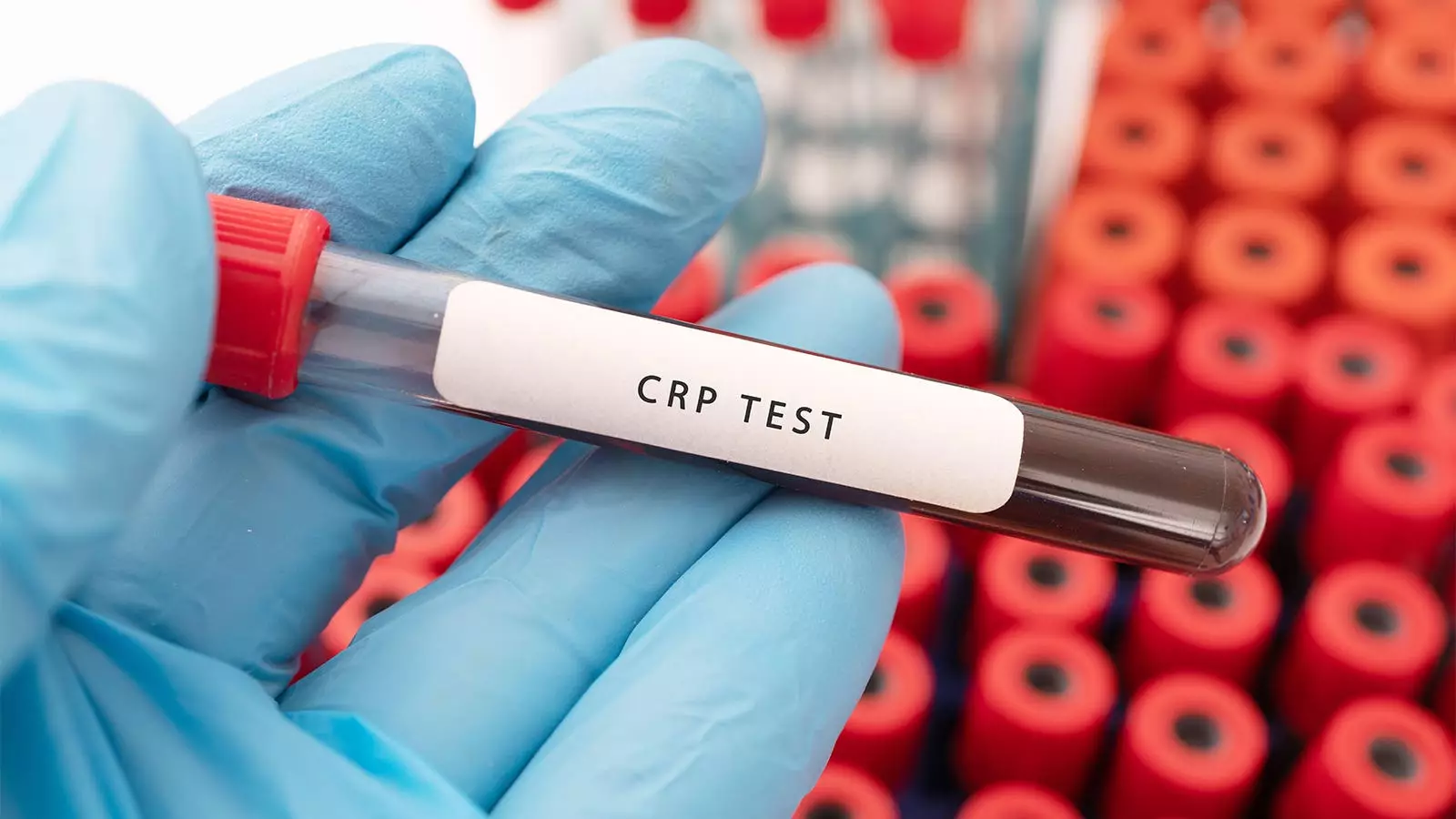Hidradenitis suppurativa (HS) is a chronic skin condition characterized by painful, inflamed nodules and abscesses, predominantly affecting areas rich in apocrine glands. This condition significantly impacts a patient’s quality of life, leading to physical discomfort and psychological stress. When it comes to treatments, adalimumab, a monoclonal antibody targeting tumor necrosis factor-alpha (TNF-α), is a commonly utilized biologic therapy for managing HS. However, response to adalimumab varies considerably among patients, prompting researchers to explore potential biomarkers predicting treatment efficacy.
Recent analyses of the PIONEER I and II trials have highlighted the significance of serum C-reactive protein (CRP) levels, an inflammatory marker, in predicting responses to adalimumab therapy in HS patients. Elevated CRP levels, defined as exceeding 0.30 mg/dL, indicate a heightened inflammatory state, which is believed to correlate with disease severity. The findings from the study, led by Dr. Alexa B. Kimball and her team, suggest that patients exhibiting elevated CRP at baseline might have a diminished response to treatment. Specifically, results indicated that individuals with higher CRP levels had less than favorable odds of achieving clinical improvement after 12 weeks of therapy.
The statistical analysis revealed notable insights into how CRP levels affect treatment outcomes. Patients with elevated CRP not only faced a reduced likelihood of clinical response (with an odds ratio of 0.53), but received a lesser benefit compared to those with normal CRP levels. Further observations indicated that the probability of clinical improvement decreased as CRP levels increased, with the top quartile of CRP levels (>2.81 mg/dL) correlating with a 30% reduced likelihood of response to adalimumab. While the treatment still showed efficacy in patients with elevated CRP, these findings illuminate the complexities of managing HS.
Experts in dermatology and immunology have weighed in on the implications of these findings. Dr. Danilo C. Del Campo of the Chicago Skin Clinic echoed that elevated CRP levels often represent systemic inflammation associated with HS severity and obesity, which makes CRP a practical marker to speculate treatment outcomes. However, he noted a divergence from relying heavily on CRP levels for determining initial treatment dosages. Instead, Del Campo advocates for starting adalimumab at the FDA-approved dose and reassessing based on clinical response after three months.
Conversely, Dr. Steve Daveluy from Wayne State University expressed skepticism about the predictability of treatment responses in HS, emphasizing the unpredictable nature of the condition. He pointed out that other factors, such as elevated monocyte counts, have also been linked to reduced treatment efficacy. This highlights the need for continuous research to refine predictive metrics for treatment response in HS patients.
Given the significant rate of treatment failure observed with biologics in HS patients, experts suggest resituating the therapeutic approach based on individual patient profiles. The study authors propose that healthcare professionals may want to consider weight-based dosing of adalimumab alongside monitoring drug levels or alternative biologics for those exhibiting high CRP. This additional granularity into patient management may enhance treatment efficacy and patient satisfaction.
Additionally, Dr. Del Campo inquired whether patients with elevated CRP levels would respond better to adjunct therapies, such as metformin or GLP-1 agonists, particularly given the association of CRP with higher body mass index. However, he cautioned that high CRP levels might also indicate a more resistant form of the disease, possibly less responsive to various treatment modalities.
The insights gained from the recent analyses illustrate that while CRP may offer a glimpse into the severity and potential treatment responsiveness in hidradenitis suppurativa, it is insufficient as a standalone predictive tool. The ongoing challenge remains to conduct further prospective studies aimed at better understanding when patients may not benefit from adalimumab therapy. By refining these predictive markers, clinicians will be better equipped to personalize treatment strategies and improve outcomes for individuals grappling with this challenging condition.


Leave a Reply